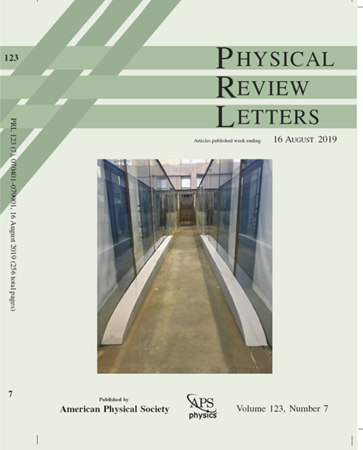非马尔可夫量子姆潘巴效应
IF 9
1区 物理与天体物理
Q1 PHYSICS, MULTIDISCIPLINARY
引用次数: 0
摘要
自从二十世纪Mpemba效应被重新发现以来,它在经典系统中得到了广泛的研究,最近在量子系统中得到了关注。Mpemba效应是指远离平衡态的状态比接近平衡态的状态弛豫得更快。许多解释经典系统中这种反直觉行为的理论都依赖于记忆效应。然而,在量子系统中,姆潘巴效应和记忆之间的关系仍未被探索。在这篇文章中,我们考虑了一般的非马尔可夫开放量子系统,并揭示了在马尔可夫量子动力学中没有类似物的新型量子Mpemba效应。一般来说,开放量子动力学具有有限的记忆时间和独特的稳态。由于非马尔可夫动力学,即使系统在稳定状态初始化,也需要很长时间才能恢复。我们发现其他的初始状态能更快地达到稳态。最值得注意的是,我们证明了系统可能存在一个初始状态,在这个初始状态中,系统在有限的记忆时间内达到稳态,从而尽可能快地弛豫到平稳性。我们验证了量子点系统在弱、中、强耦合的平衡和非平衡条件下与电子储层耦合的效应。我们的信件为量子系统中加速弛豫的丰富物理学提供了新的见解。2025年由美国物理学会出版本文章由计算机程序翻译,如有差异,请以英文原文为准。
Non-Markovian Quantum Mpemba Effect
Since its rediscovery in the twentieth century, the Mpemba effect, where a far-from-equilibrium state may relax faster than a state closer to equilibrium, has been extensively studied in classical systems and has recently received attention in quantum systems. Many theories explaining this counter-intuitive behavior in classical systems rely on memory effects. However, in quantum systems, the relation between the Mpemba effect and memory has remained unexplored. In this Letter, we consider general non-Markovian open quantum systems and reveal new classes of quantum Mpemba effects, with no analog in Markovian quantum dynamics. Generically, open quantum dynamics possess a finite memory time and a unique steady state. Because of non-Markovian dynamics, even if the system is initialized in the steady state it can take a long time to relax back. We find other initial states that reach the steady state much faster. Most notably, we demonstrate that there can be an initial state in which the system reaches the steady state within the finite memory time itself, giving the fastest possible relaxation to stationarity. We verify the effect for quantum dot systems coupled to electronic reservoirs in equilibrium and nonequilibrium setups at weak, intermediate and strong coupling. Our Letter provides new insights into the rich physics underlying accelerated relaxation in quantum systems. Published by the American Physical Society 2025
求助全文
通过发布文献求助,成功后即可免费获取论文全文。
去求助
来源期刊

Physical review letters
物理-物理:综合
CiteScore
16.50
自引率
7.00%
发文量
2673
审稿时长
2.2 months
期刊介绍:
Physical review letters(PRL)covers the full range of applied, fundamental, and interdisciplinary physics research topics:
General physics, including statistical and quantum mechanics and quantum information
Gravitation, astrophysics, and cosmology
Elementary particles and fields
Nuclear physics
Atomic, molecular, and optical physics
Nonlinear dynamics, fluid dynamics, and classical optics
Plasma and beam physics
Condensed matter and materials physics
Polymers, soft matter, biological, climate and interdisciplinary physics, including networks
 求助内容:
求助内容: 应助结果提醒方式:
应助结果提醒方式:


